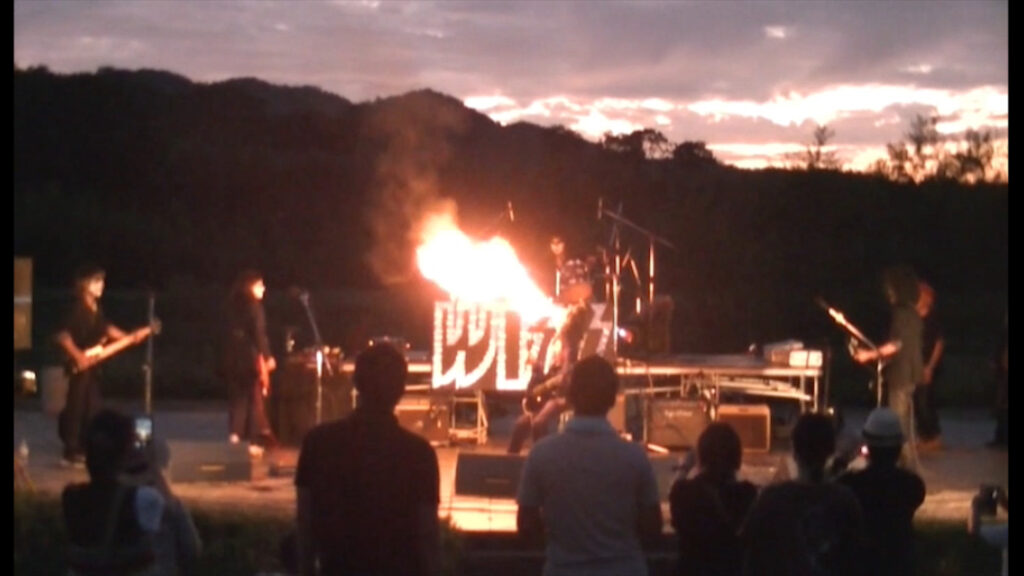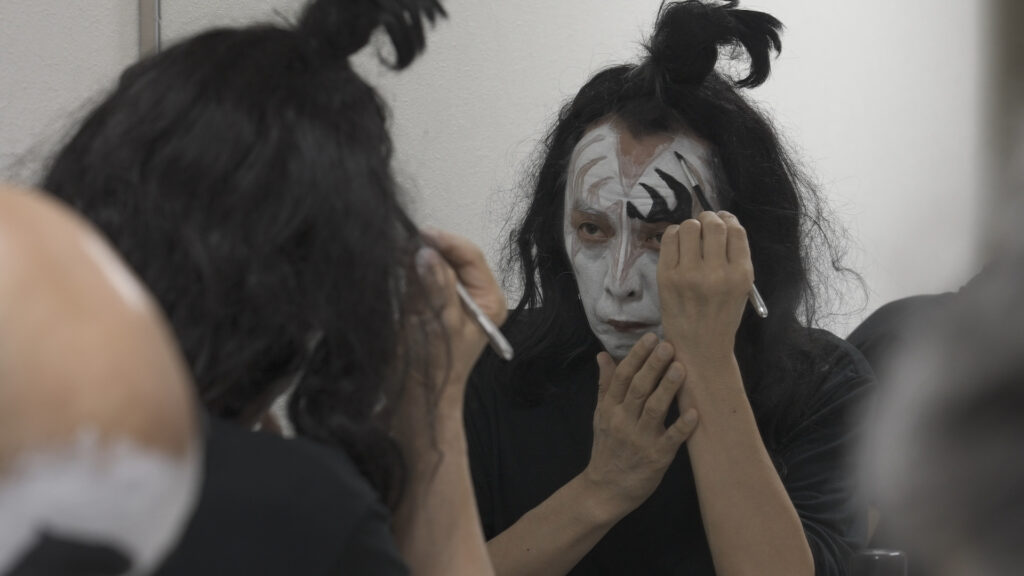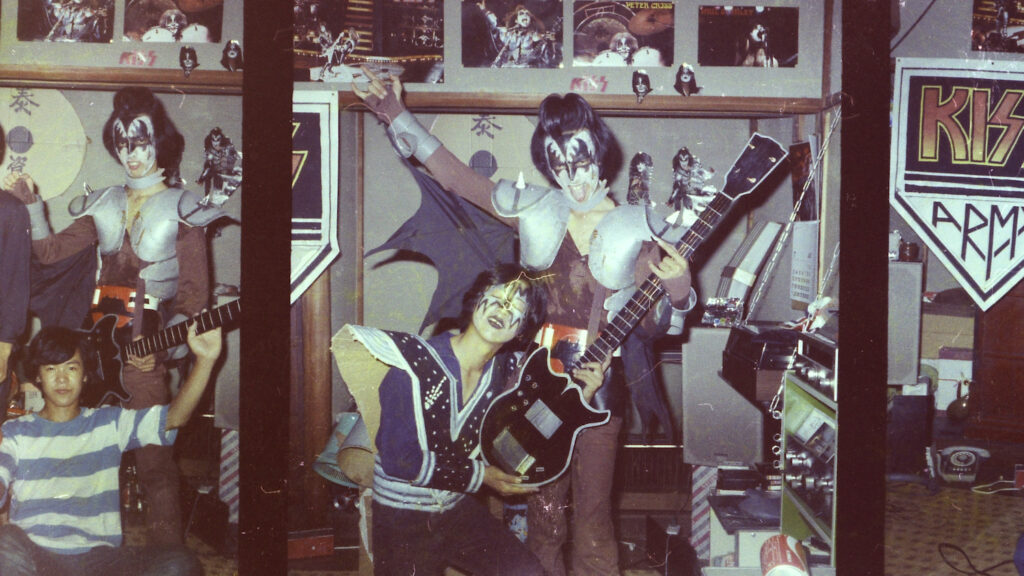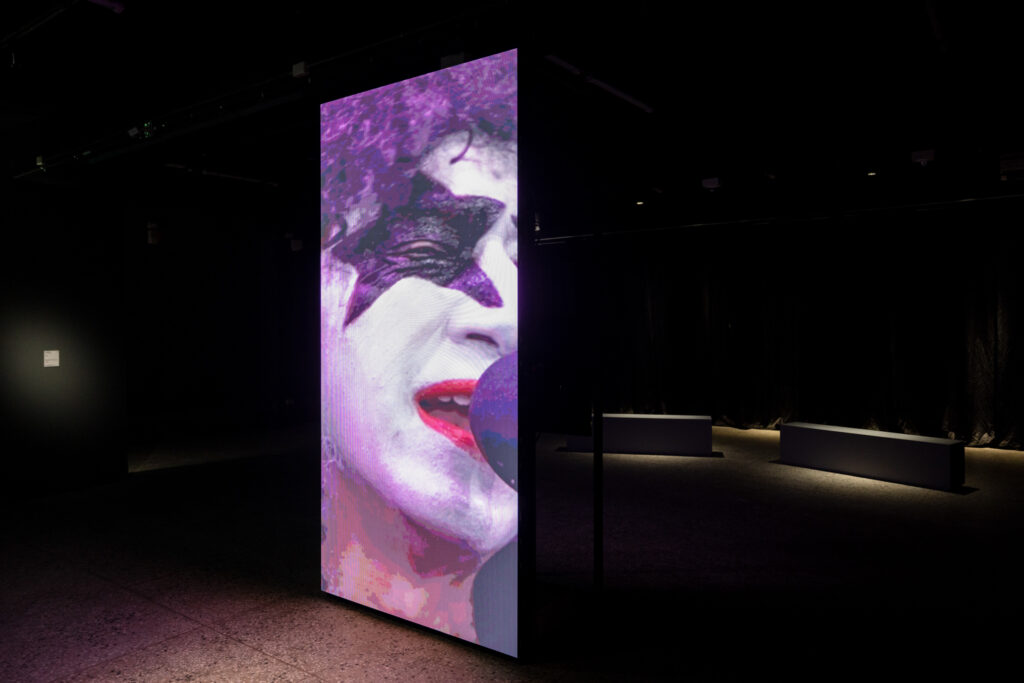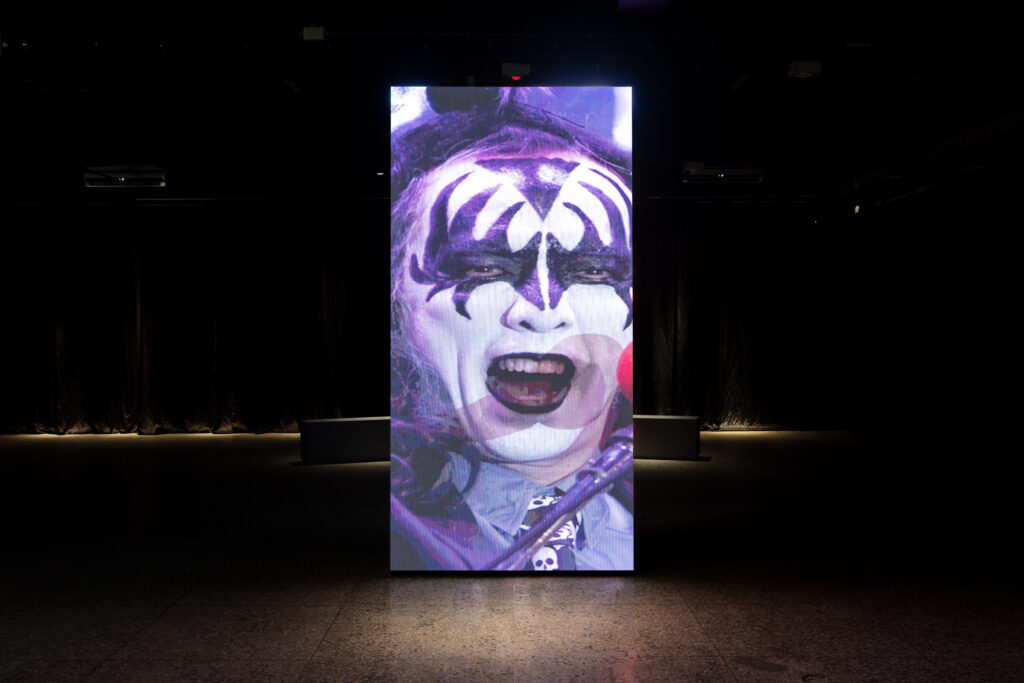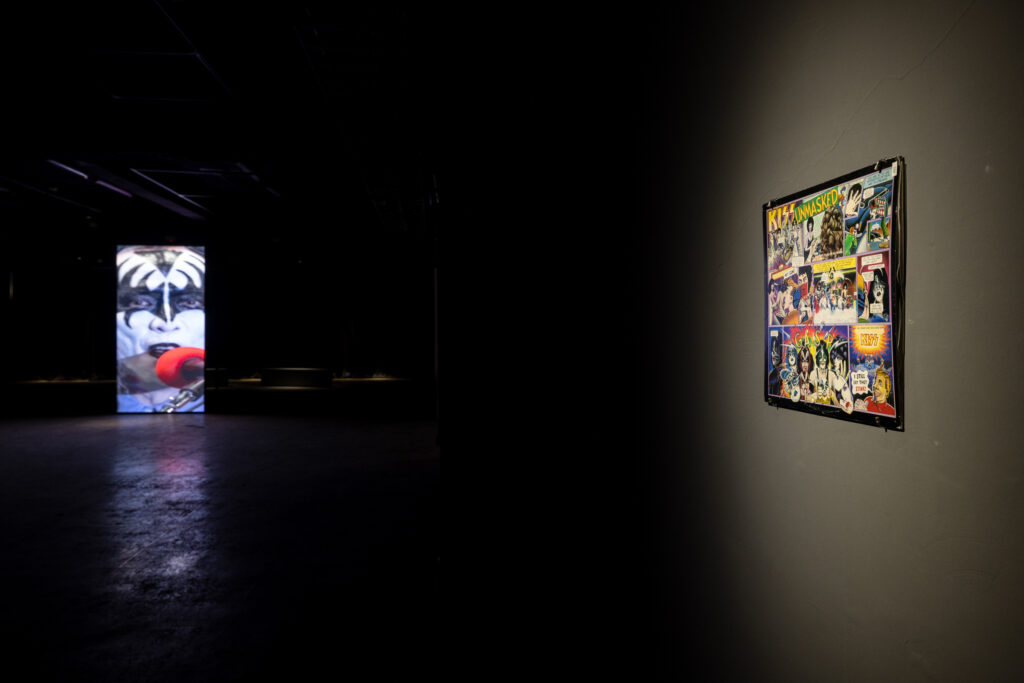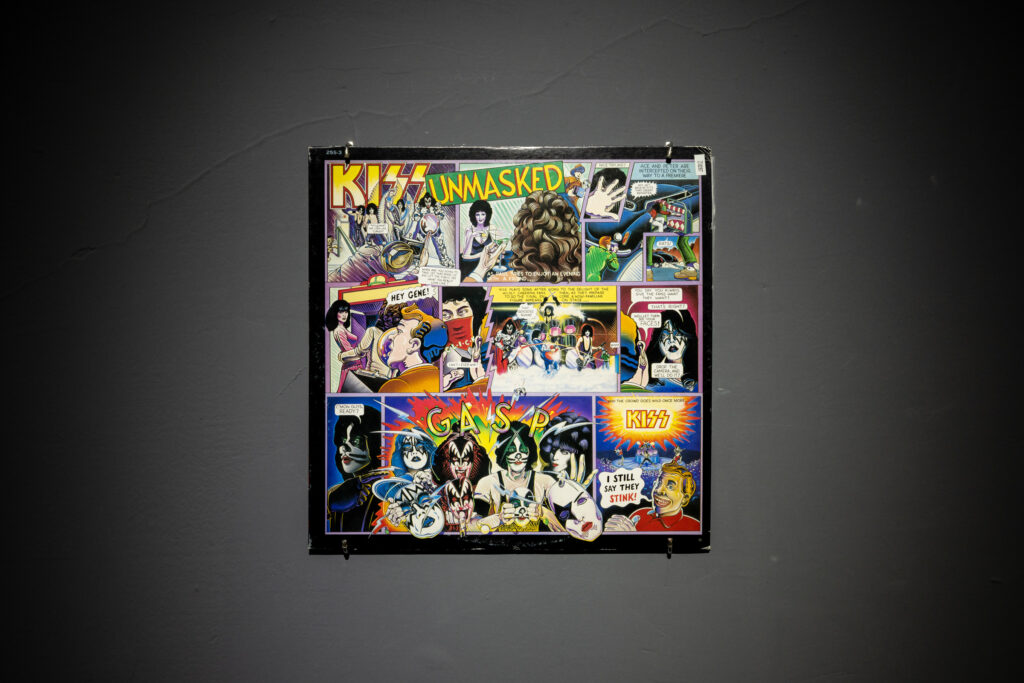Two-channel video installation (LED Vision, LCD monitors, stereo, color)
Commissioned work for Yebisu International Festival for Art & Alternative Visions 2023, organized by Tokyo Photographic Art Museum
“Cover bands” or “tribute bands” – commonly referred to as “copy bands” in Japan – play famous songs by other people. The movement is said to have started and spread around the world back in the 1950s, at a time when musical scores for bands were not yet commercially available. The difference between both, very roughly, is that “cover bands” arrange the original songs in their own style, whereas “tribute bands” first and foremost adhere to the original versions, and sometimes even “transform” into the original musicians by dressing and acting like them.
Unmasked (Bootleg) is a portrait of WISS, a band based in Yagi-cho, Nantan-City, Kyoto Prefecture. As a tribute band, they have been playing songs by the American hard rock band KISS for 15 years, and I have been following them ever since certain circumstances brought me together with the members two years ago. The way they express their love and respect for KISS through their interpretations of the band’s songs and world view, is in itself a tribute, but they also have their own story. Different from the real thing, WISS are a quintet, and it happened in the past that the members switched makeups and instruments at a live show.
The work at this exhibition is presented as a video installation of two back-to-back monitors. The large LED Vision display on the front side shows a live performance in brilliant but silent images. Playing on the reverse side is footage of interviews with the band, the members doing their day jobs, or putting on makeup before the show. They portray the band “masked and unmasked” so to speak – onstage and offstage, in performance and in daily life, with and without makeup. However, the sides aren’t completely disconnected, but they are rather two faces of the same coin, and I hope that viewers will enjoy witnessing the gradual transformations that take place here.
The work does not include any audio of the live performance, for which there are various reasons, including the idea to highlight the issues of copyrights and reproduction rights that every tribute band is destined to cope with. I have been interested in problems related to originals and copies, and now I realized again that it is difficult to discuss this concept as a binary opposition. Copying original songs in a faithful manner, with as little difference as possible, doesn’t change anything in the “master-servant” kind of relationship between original and copy. In the question how it may be overturned, I focused my attention on the “essence of the reproduction act itself” that comes to the surface when ignoring the “quality of the performance” that is supposedly what it is all about. While pretending to do a music documentary, the idea was to capture the originality and uniqueness of WISS under the limiting condition that none of their music would be used. I don’t know whether the result will work as intended, but I believe that this explanatory note will be a helpful aid for your enjoyment of the exhibition.
Yu Araki
